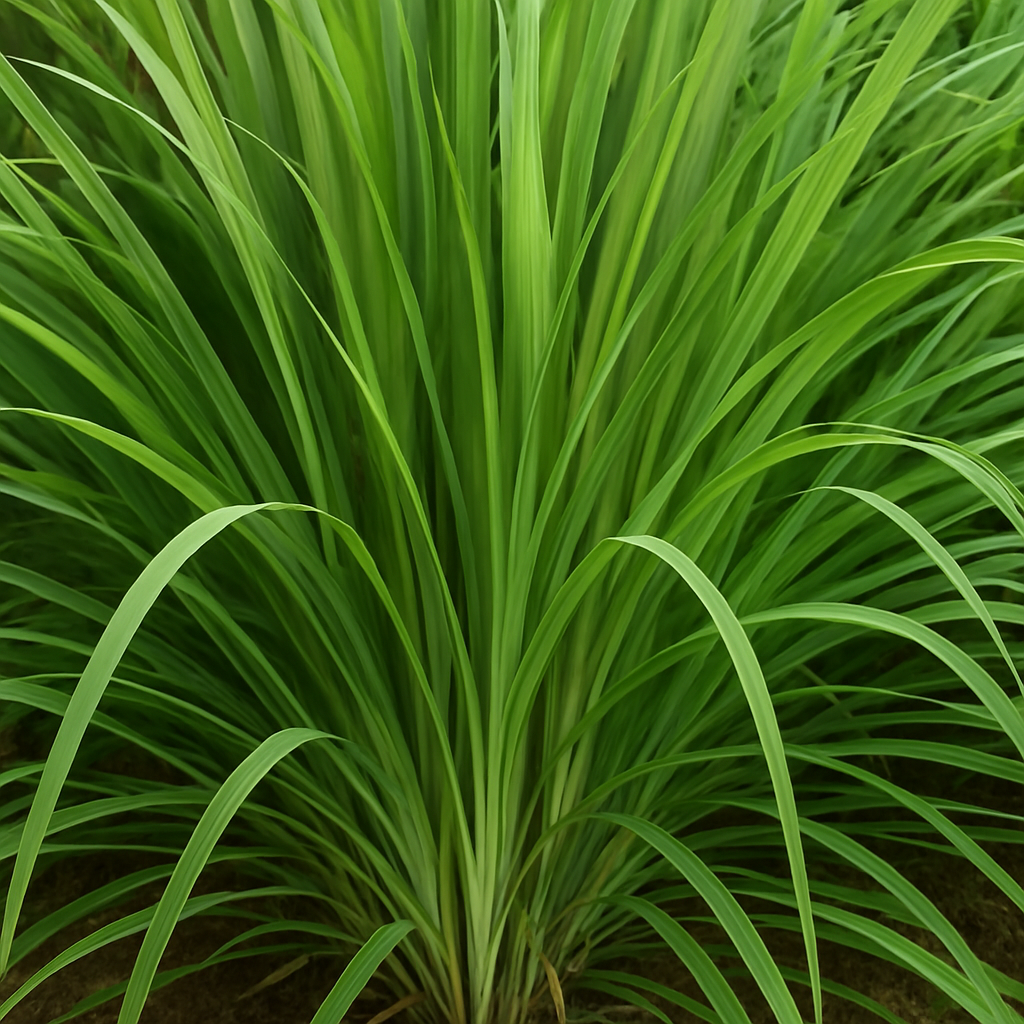Lemongrass, also known as citronella grass or Cymbopogon citratus, is a tropical plant widely appreciated for its fresh citrus scent and medicinal properties. Known in Brazil as capim-cidreira or capim-santo, this herb has been used for centuries in traditional medicine, culinary practices, and aromatherapy.
Botanical Characteristics and Origin
Lemongrass belongs to the Poaceae family, the same as grasses and grains. It is native to South and Southeast Asia, particularly India and Sri Lanka. The plant grows in dense clumps and can reach heights of up to 1.5 meters (5 feet). It has long, narrow, light green leaves with sharp edges and a distinct lemon-like aroma when crushed.
Due to its hardiness and ease of cultivation, lemongrass is now grown in tropical and subtropical regions around the world, including Brazil, where it thrives in home gardens and herbal farms.
Medicinal Properties Backed by Science
Lemongrass is highly valued for its therapeutic benefits. Several scientific studies support the plant’s potential health properties, such as:
- Calming and anxiety-reducing effects: Lemongrass tea is a popular home remedy for stress, anxiety, and sleep problems due to its mild sedative effect.
- Digestive support: It stimulates digestion and helps alleviate symptoms like bloating, indigestion, and stomach cramps.
- Antispasmodic action: The plant can help relieve muscle spasms and menstrual pain.
- Analgesic (pain-relieving): Lemongrass may reduce mild to moderate pain, especially tension headaches.
- Anti-inflammatory: Its compounds help reduce inflammation in the body.
- Antioxidant effects: Rich in phenolic compounds, lemongrass helps combat oxidative stress by neutralizing free radicals.
These benefits make lemongrass a natural option for those seeking gentle, plant-based wellness support.
How to Use Lemongrass
The most common form of consumption is lemongrass tea. To prepare it, you can use 3 to 5 freshly cut leaves per cup of hot water. After adding the leaves, cover the container and let it steep for 10 minutes. Then strain and drink.
Other common uses include:
- Essential oil: Extracted by steam distillation from the leaves, lemongrass oil is used in massage therapy, aromatherapy, and skincare due to its calming and antifungal properties.
- Tinctures and capsules: Found in natural medicine shops, often used in specific dosages for therapeutic purposes.
- Compresses: The tea or oil can be applied to the skin for localized pain or inflammation relief.
In cooking, especially in Thai and Indian cuisine, lemongrass adds a citrusy flavor to soups, curries, teas, marinades, and desserts.
How to Grow Lemongrass at Home
Lemongrass is easy to grow, making it perfect for home gardens or even large pots. It prefers:
- Full sun exposure
- Well-drained, fertile soil
- Regular watering, without letting the soil get soggy
You can plant it by dividing mature clumps or using rooted cuttings. Once established, lemongrass grows quickly and can be harvested every few weeks. Leaves are best picked in the morning when their aroma is strongest.
Aside from its culinary and medicinal value, lemongrass also acts as a natural mosquito repellent, making it a useful plant to have near doorways and windows.
Safety and Precautions
Although lemongrass is considered safe for most people when used in moderate amounts, some precautions should be taken:
- Low blood pressure: Lemongrass may slightly lower blood pressure, so people with hypotension should use it sparingly.
- Pregnancy and breastfeeding: Pregnant women should consult a healthcare professional before using lemongrass teas or supplements.
- Drug interactions: Lemongrass may interact with sedatives, antidepressants, or anti-inflammatory medications. If you’re taking medication, it’s best to speak with your doctor first.
Excessive use of the essential oil on the skin may cause irritation or allergic reactions in sensitive individuals.
Cultural and Spiritual Significance
In many cultures, lemongrass is considered a spiritual cleansing plant. In Brazil, it is often used in herbal baths or energy-clearing rituals to promote peace and ward off negativity.
In Hindu traditions, lemongrass is associated with purification and protection, often used in incense or religious offerings. Its uplifting scent is believed to balance the mind and emotions.
Final Thoughts
Lemongrass is more than just a fragrant herb — it’s a powerful plant with centuries of traditional use and growing scientific support. Whether you enjoy it as a tea, grow it in your garden, or use it for natural healing, lemongrass offers a unique combination of flavor, aroma, and wellness benefits. Its calming properties, ease of cultivation, and versatility make it a cherished herb in many parts of the world.


